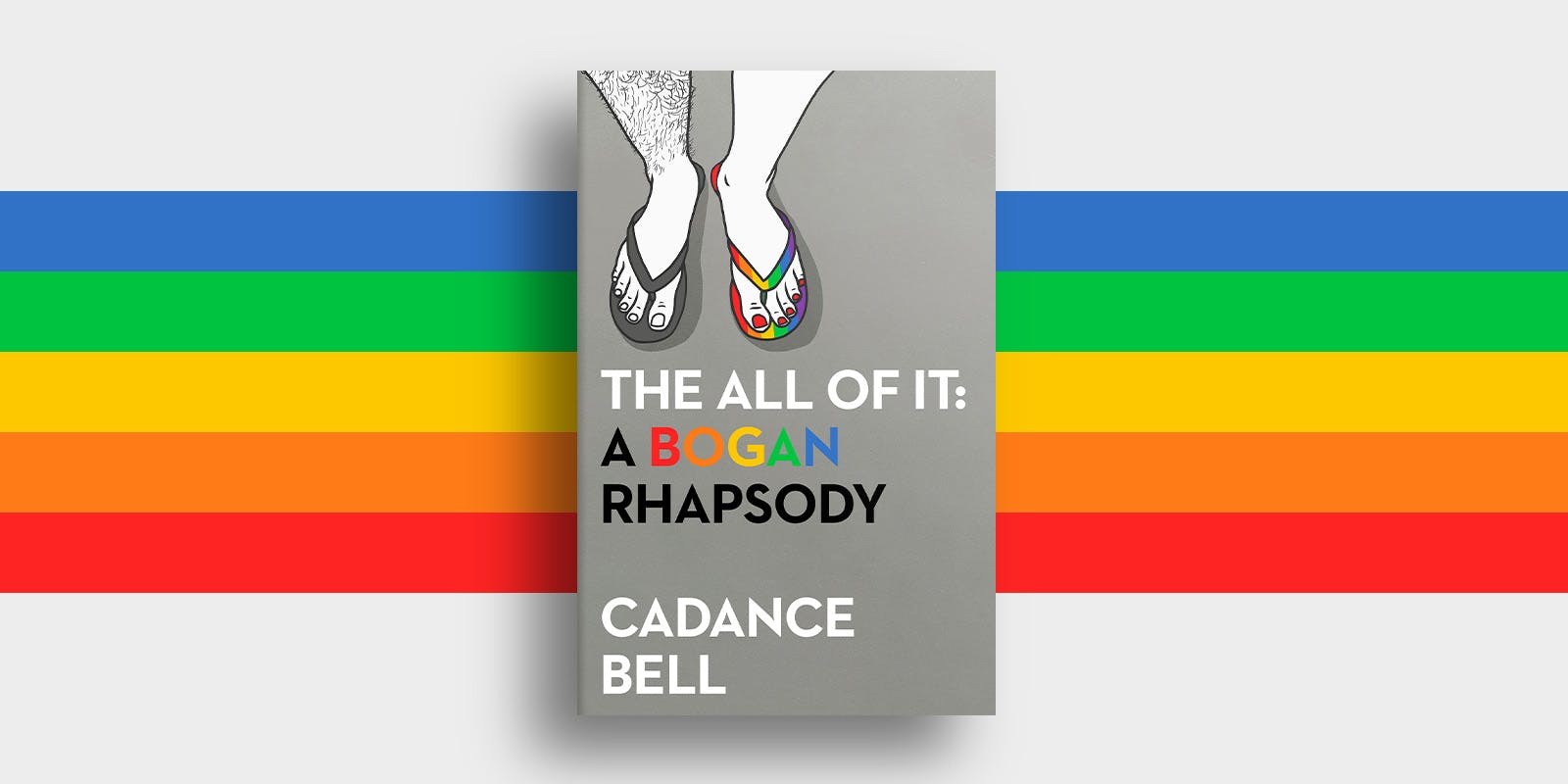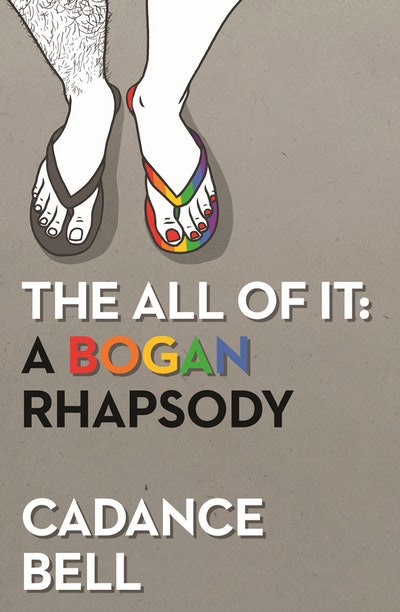We talked to Cadance Bell to learn all about her new book, The All of It.
Have you always been a writer? When did you start writing, and was there a moment when you realised your talent?
I started writing when I was very young; my mum still brags that she has some of my childhood poetry. I’ve tried to buy them off her for fire lighting purposes, but she won’t release them from her cold, calculating dragon claws.
Though, I don’t know if I’m talented so much as I have an addiction to words. I have an almost synesthetic relationship with them, and it delights me to tell stories doing the word-thang, so I just keep chasing that like a literary junkie.
You’ve done a lot of different types of writing (film, blogs, articles, etc.). How did that experience translate into the writing of the memoir?
All of my blogs, articles and performances were leading me to publication by helping me to refine and test my style. Especially considering the dark and whacky places I like to take things in narratives, it took a few years to find my voice for The All of It.
And I tried to borrow from my screenwriting style, to give my memoir a much more cinematic structure. Screenplays require the most economical, nuanced writing. I find that efficiency and pacing to be fun to exploit, it makes for great page-turners.
What inspired you to share your story through the written word?
There’s so much more opportunity to explore character development in books. I made a conscious decision to write narrative non-fiction, as opposed to a stream of consciousness or chronological autobiography, because it felt like a great way to really utilize a dozen or so hours of a person’s attention.
When you’re reading a book, you’re not doing something else at the same time, it’s a very active medium – unlike when I’m watching Stranger Things and texting and getting my Facebook dopamine and doom scrolling memes about millennial poverty.
What was the most difficult part of writing this memoir?
There were some very difficult chapters. They took a lot out of me, and even more for the audiobook performance (which I narrated myself). Though it was also a struggle to balance the sheer scale of the book – it covers a big time period, and it doesn’t pull any punches! Knowing when to give the reader relief, and how to make sure that important themes weren’t lost in the skim took a lot of planning and reassessment, but I’m so happy with the result.
Were you writing with an audience in mind, or was it more writing for yourself?
I was always writing for an audience – they were my chief priority, making sure they had a good experience. Moreover, that audience wasn’t as obvious as one might expect in an LGTBQIA+ story. I was very much aiming for non-readers, working-class people, and average joes who might not otherwise ever read something like this.
The reader always came first, I never wrote for catharsis or status or to clear the air. I am so honoured that someone would read about my meandering shenanigans and I wanted them to have a great time doing it.
If you could only choose one thing, what is the single most important message that you hope readers take away from the book?
We can’t love anyone else until we love ourselves.
Do you have any advice for aspiring writers/ creatives?
Persevere! That was advice once given to me by an author, and I didn’t value its meaning for the longest time. Also, don’t be afraid to be vulnerable in your writing. Often the things which are the hardest to articulate carry with them the most beautiful authenticity, and audiences feel that. You can connect with them in a way that transcends conversation; you can offer experience and that is a priceless gift – you are literally the only person who can do that!
Learn more about the book, and check out upcoming events with Cadance.













